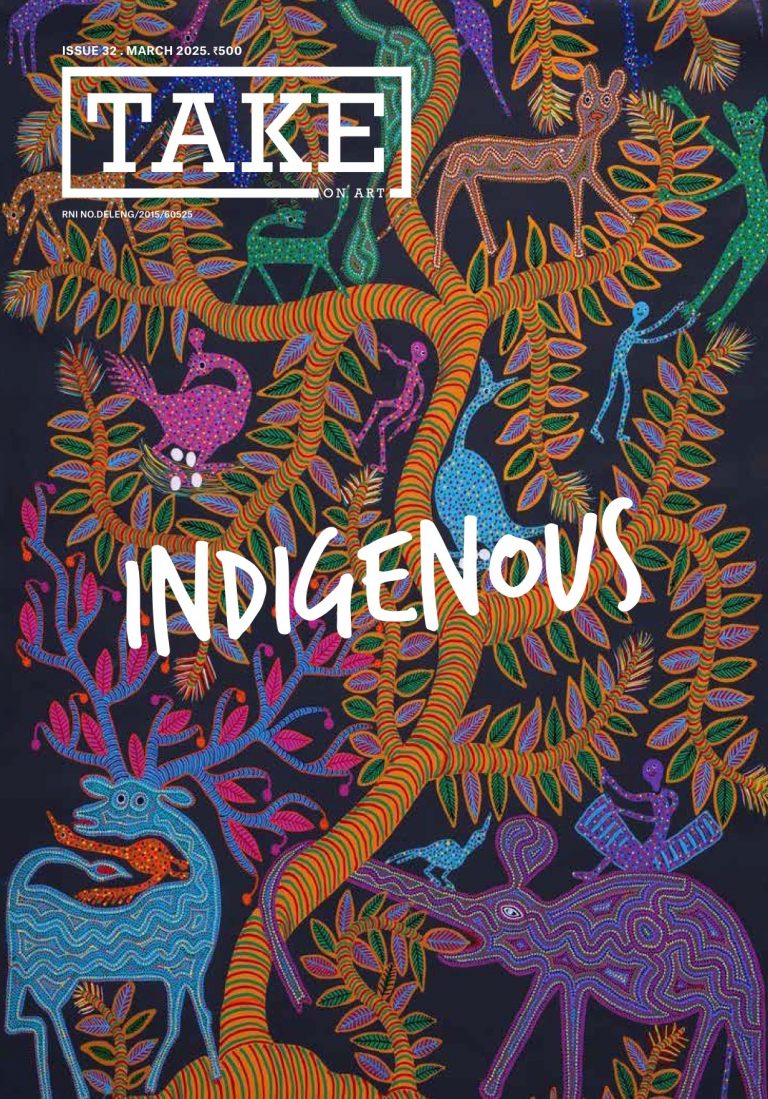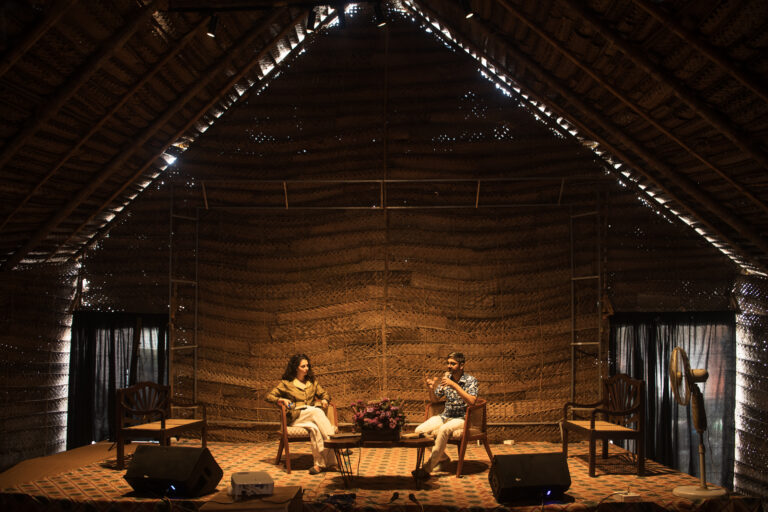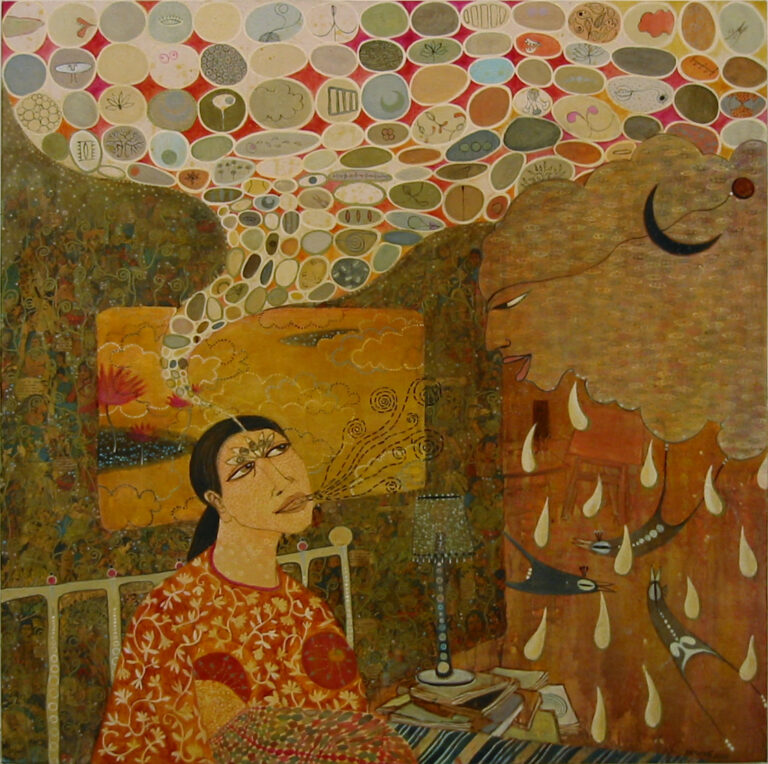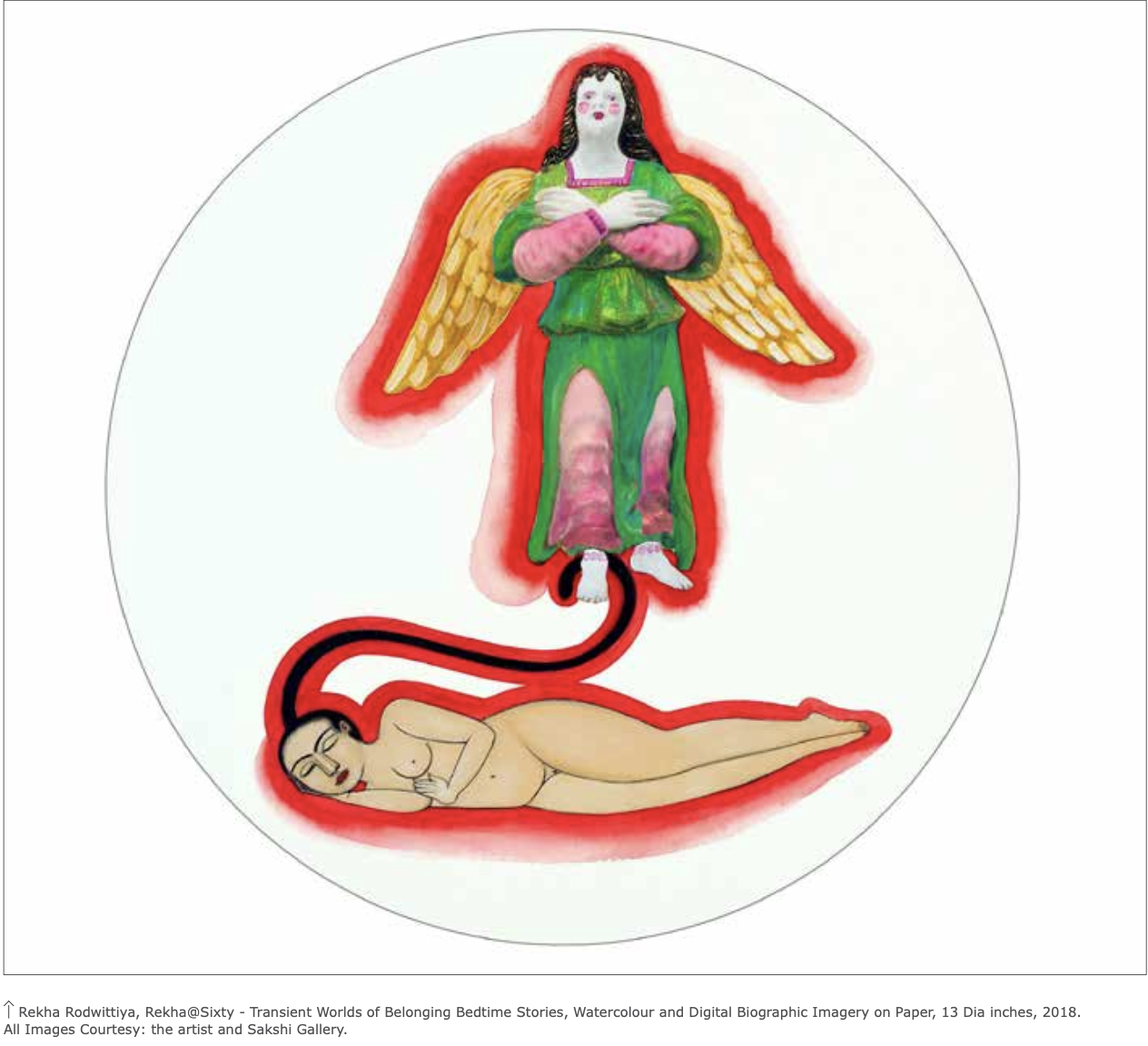
“We are meant to survive… beyond our stories ” was a selected overview which showcased the Godrej collection of Rekha Rodwittiya’ work of four decades. After completing her Bachelor studies from Baroda she was the first recipient in the field of fine arts of the prestigious Inlaks scholarship to study at the Royal College of Art, London. Upon her return to India Rekha claimed a space for her unequivocally feminist ideology and established herself as an important and powerful voice that questioned the status quo of the art establishment and carved a niche for herself in less than a decade from the start of her career in 1985. “We are meant to survive…” covered the whole gamut of her oeuvre from her student days in Baroda and RCA to her latest offerings from the 2020s. One might be tempted to call the show a mini retrospective although not designated as such officially.
The early works that one encountered upon entering the gallery offered clues to an artist’s search for a voice leading to some sterling works from her early phase. The drawings, sketches, prints and some larger paintings from the early 1980s to early 1990s provide a window into the mind of a combative young artist responding to life and its inequities, developing a language that is gestural, angular and bespoke of the angst laced with metaphors. The portraits of punks with spiked Mohican hairdo, gothic dressers, masked men wearing the dunce cap, clowns and pageantry are interspersed with impressions of London, friends, animals and bits of the world intimately observed. These formed a dense display at the entry level. A tiny figure of a sword eater stands out for its quirkiness. A cursory line drawing of a tiger in pastel, the self-portraits, the objects are all there that will reappear in new avatars in the decades to come.
It is in the mid-1990s that the angularity and the expressive edginess of her early works get somewhat mellowed by the adoption of the female protagonist as an iconic image occupying the central space that is associated with her mature style. The project of developing a figure combining a fluid linearity and refinement was marked by flat colours that eschews the gestural tendencies of the earlier figuration. The underlying quest to negotiate self-identity, from experiments with abandon to a more controlled figuration, began appearing as a central motif in a tableau of gestures. The leitmotif of the woman as the protagonist is carried forward but the stress shifts to a configuration designed to deflect the objectification associated with the politics of ‘gaze’. In them the artist negotiates a difficult terrain of the gendered binary of representation of the female body, where one extreme is to question every female nude as a sell out and the other being that of the easy time-tested hyper-sexualized goddess. Rekha’s women are constructed irrespective of whether they are clothed or naked foils voyeuristic tendencies. These alter egos play out the role of protagonists in various incarnations. Rekha’s women perform various acts with élan, very often their gaze meeting that of the viewer squarely. A calm reflexivity permeates the figures.
It is exciting to trace the trajectory where Rekha extends the possibilities in every new suite of work. Take for instance, the set of eight large digital prints (The Guarded Metropolis of the Feminine Heart – version II, 2013) where the dense linear white lines against a black background acquire a lace-like filigree connecting the figures and the objects, animals and arabesque of vines in a tight tapestry. As one climbed up to the first floor one entered a calmer zone.
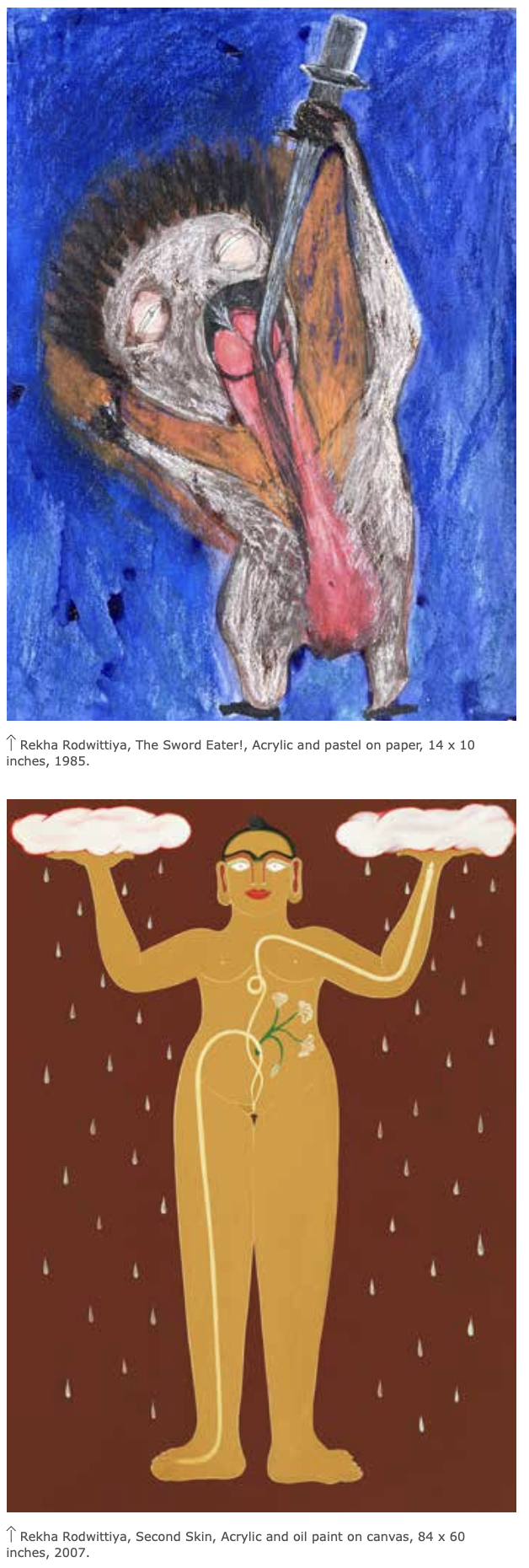
The 2010s decade saw Rekha branching out into many new mediums that included working in three dimensional formats, screens, on banner-like cloth ; both painted and embroidered, paintings that incorporated commercially available stickers along with painted images, two dimensional laser-cut steel objects and also digital imagery. The manipulation of images digitally requires special mention because it permeated in her practice in myriad ways. In more recent manifestations one encounters carefully constructed digital prints almost entirely painted over in an elaborate and intricate manner that mostly override the underlying constructs. Going back to early 2010s “The Intangible Interlocution: An Anthology of Belonging” used digital images extensively combined with paintings. Then came the version-II of the same set where the protagonists were entirely made up of carefully selected digital images. These large statuesque monochromatic figures demanded very close scrutiny as they were built, almost brick by brick, with a plethora of photographic images culled from the archive of personal history that tantalizingly challenges the viewer to construct a narrative by connecting the dots. On the other end of the spectrum is a suite where a small vulnerable sleeping figure appears in every iteration; ensconced sometime in a conch shell, a flower pod, dreaming of an angel or found resting against a familiar toy. These contrapuntal figures – delicate, vulnerable and intimate almost like whispered lullabies, so unlike the frontal guardian figures of the large digital works, make up the series titled “Bedtime Stories”.
The show surveyed and brought together a sampling of the major stations in the journey of Rekha spanning the decades and left the viewer with an insight into the twists and turns of her search in more ways than one. It is certainly a show that despite the paucity of space does justice to the oeuvre of a major artist who finds ways to surprise us and instill a sense of wonder in this cynical world at how hope is eternal. I am reminded of an interview of Arundhati Roy where she shared how hope is not always tied to the apron string of reason. Arundhati reasoned how no one would have believed a year before the release of Mandela that the end of apartheid was imminent and yet the regime unraveled with alacrity despite all the cynicism. “We are meant to survive…” will remain a milestone for bringing us a glimpse of a journey poignantly graced with the power of self-belief, beauty and hope.
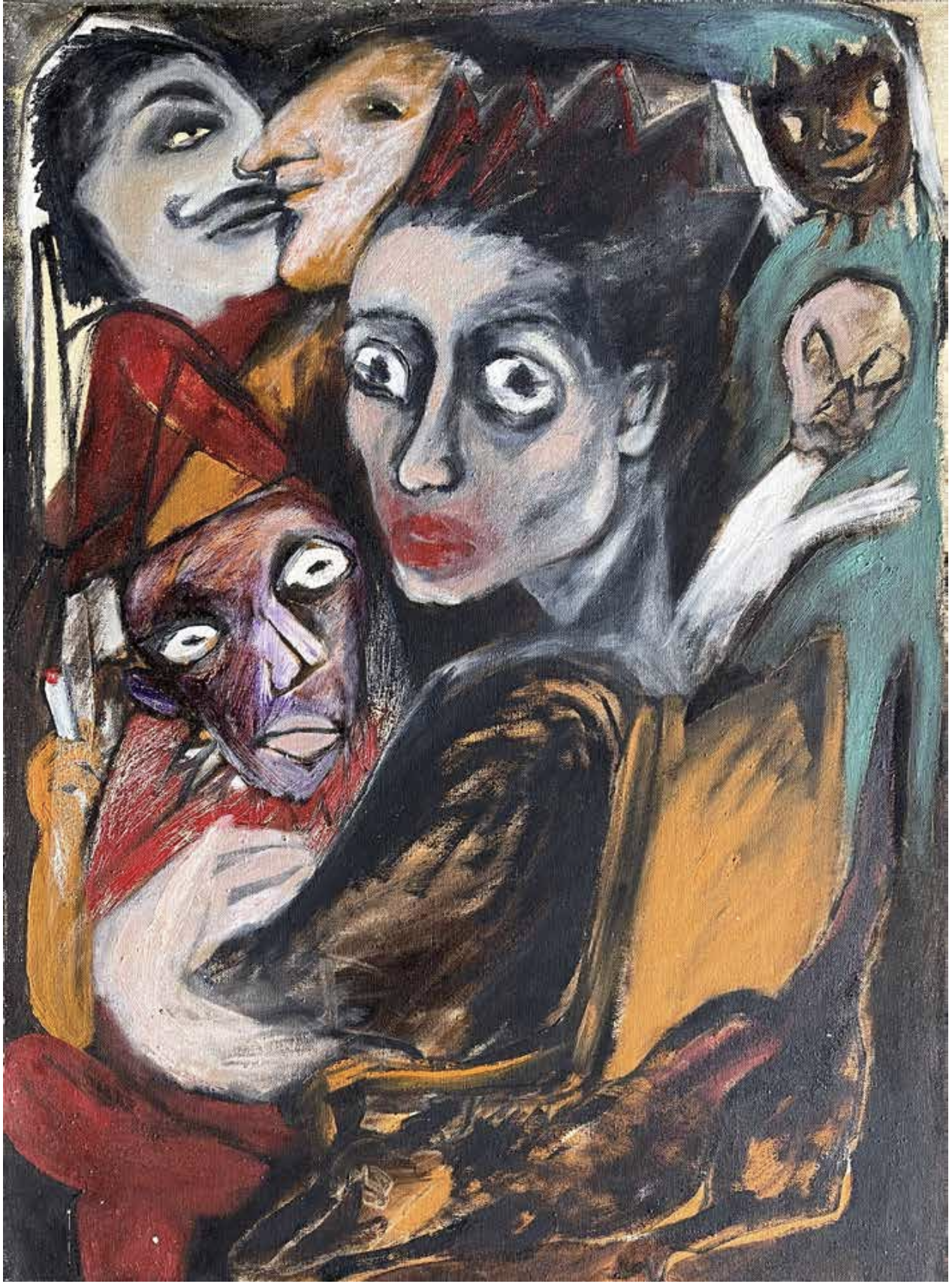
“We are meant to survive… beyond our stories” by Rekha Rodwittiya, Presented by Sakshi Gallery, Mumbai, January 11 – February 28, 2024.











